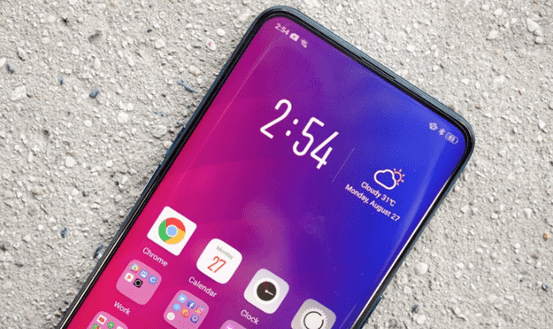
OPPO Mobile, a global smartphone company that has for a long time led the way smartphones are designed around the world has again announced another invention in the Smartphone world.
For the first time in the history of the world and technology, a smartphone with a hidden camera now known as Under-Screen Selfie Camera (USC) has been displayed publicly for the world to see.

Taking a look at OPPO’s Under-Screen Selfie Camera (USC) smartphone, you find no selfie camera, no motorized camera, no pop-up camera, no notch; all you see is screen.
Little would you know that the camera is actually underneath the screen layer, which gives users the chance to use a full screen without any distortions.
Unveiled on the 26th of June 2019 at the Mobile World Congress (MWC) in Shanghai, OPPO Mobile explained the science behind the technology.
OPPO Mobile says the display uses a custom transparent material that works with a redesigned pixel structure so that light can get through to the camera.
The sensor itself is said to be larger than other selfie cameras, with a wider aperture lens in front. The area of the screen reserved for the camera still works with touch control, and OPPO says display quality won’t be compromised

Without a doubt, OPPO Mobile has been able to show that it can provide users with ever more screen real estate where other smartphone manufacturers have struggled.
Interestingly, the next best thing to the Under-Screen Selfie Camera (USC) technology, which is the mechanical pop-up cameras; was also pioneered by OPPO Mobile, leaving notches and pinholes behind design and performance wise.
It is not surprising that OPPO has yet again pioneered the Under-Screen Selfie Camera (USC) smartphone technology. The brand has traditionally been known to fast track its technological advancements and bring them to market quickly – so it’s possible that we may have this tech in our hands sooner rather than later.
More on Oppo
The post OPPO Says RIP To Notch Screens With The World’s First Under-Screen Selfie Camera appeared first on Nigeria Technology Guide.
* This article was originally published here
